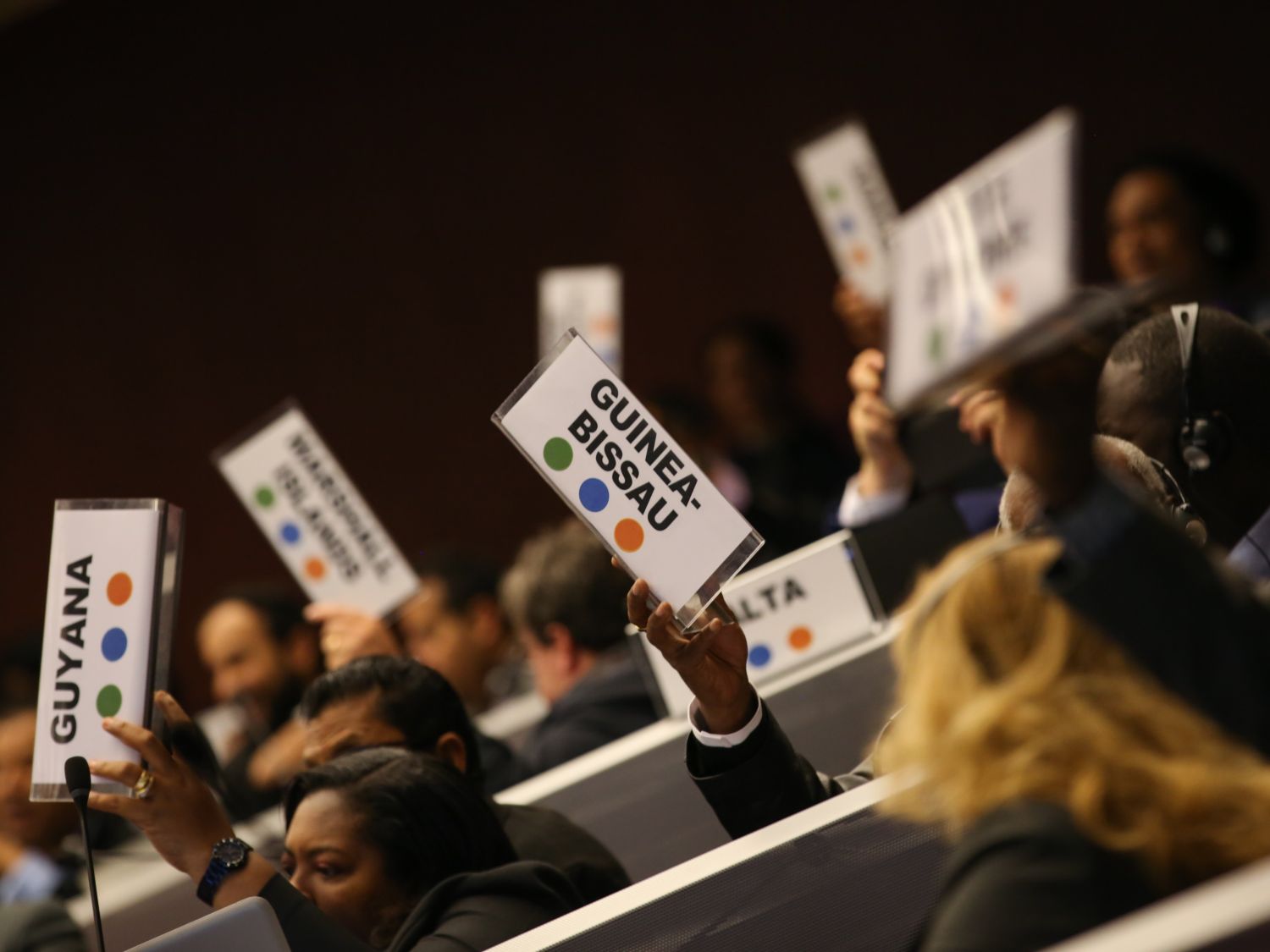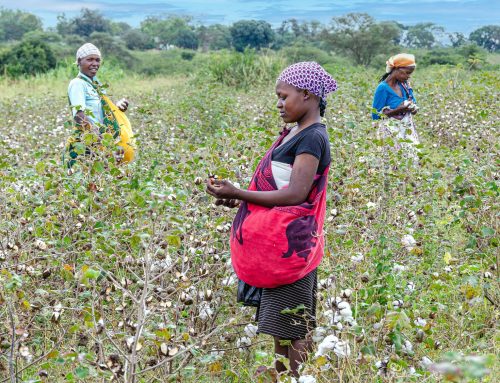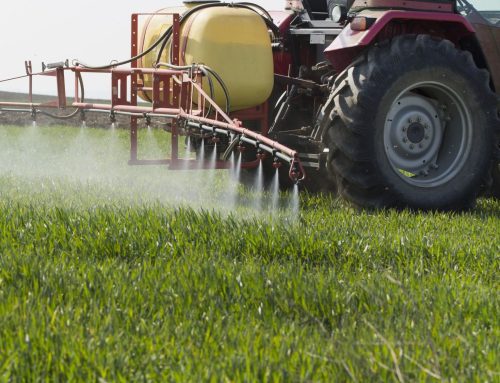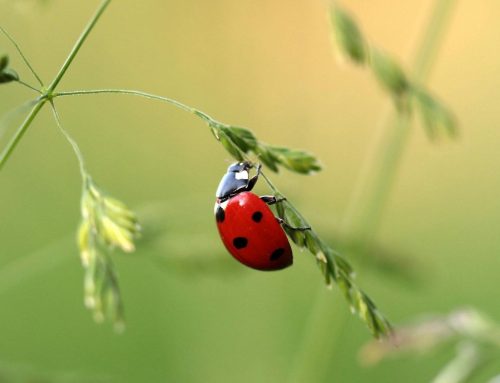PAN UK will shortly join colleagues from PAN International in Geneva, Switzerland, for the Conferences of the Parties to the Basel, Rotterdam, and Stockholm Conventions – the ‘BRS COPS’ – where important decisions on a range of hazardous pesticides are on the table.
The Stockholm Convention is focused on persistent organic pollutants (POPs), with chemicals listed on its annexes subject to restrictions on production, use and trade, including, potentially global bans.
The Rotterdam Convention helps countries responsibly manage international trade in hazardous chemicals, including pesticides. Pesticides listed in its Annex III are subject to the Prior Informed Consent (PIC) procedure, obliging exporting countries to notify importing countries of intended trade, and giving importing countries the right to refuse or accept those imports.

Photo by IISD/ENB | Kiara Worth
Pesticides are subject to very few international agreements or controls despite the vast global trade in these hazardous chemicals. Regulatory bodies in importing countries may be unaware of the dangers of certain highly hazardous pesticides or even uninformed that these chemicals are crossing their borders. As a step towards addressing this gap, the Stockholm and Rotterdam Conventions were brought into force in 2001 and 2004 after decades of work by governments, scientists and other groups, notably the Pesticide Action Network.
Almost all countries in the world have ratified these conventions (186 and 167 countries or ‘parties’ respectively). However, the conventions only apply to certain lists of chemicals which are identified in their annexes. The Stockholm Convention identifies just 18 pesticides and the Rotterdam Convention lists 37 pesticides, compared to thousands of pesticide products on the market. This helps to make the trade of these harmful chemicals more transparent and PAN UK is pushing hard to get more of the most hazardous pesticides listed in these annexes to improve the protection of human health and the environment.
This year, chlorpyrifos, paraquat and and a range of other highly toxic pesticides are candidates for listing on Annex III of the Rotterdam Convention. Paraquat has been recommended for listing every year since 2011, but has been blocked each time. Its use is banned in 72 countries including in the UK and Europe (one sip is lethal), but it is still produced in the UK and exported worldwide.
The insecticide chlorpyrifos is also a candidate for listing in Annex A under the Stockholm Convention, and PAN is advocating for a total ban without exemptions.
What is PAN doing?
We are doing our bit to help these critical international conventions protect global communities and the environment from harmful impacts of pesticides.
Our BRS Advisory recommends that governments list of all the pesticides recommended for listing without exception or exemptions under both conventions, and provides a range of technical briefings from across PAN International on the harms of and alternatives to these pesticides, and in particular chlorpyrifos.
PAN UK has also contributed to a new study, published in Toxics, which, reveals significant levels of poisoning among Tanzanian cotton growers following occupational exposure to pesticides, including chlorpyrifos.
These resources, and PAN UK’s short video on paraquat will be featured at PAN International’s exhibition booth at the BRS COPS.
PAN UK is also organizing or involved in several side events in Geneva, including:
- Accelerating the transition from HHPs to biopesticides and agroecological alternatives – Friday 2 May, 18:15-19:45, CICG Room 14, and online (via Zoom registration link).
- Making visible the invisible occupational victims of chemicals recommended by the CRC for listing on Annex III of the Rotterdam Convention – Monday 5 May at 18:15-19:45, CICG Room 2.
- Private Certification Schemes (organised by the European Union) – Tuesday 6 May at 13.15 – 14.45, Room C.
This adds to PAN UK presentations in two well attended webinars organised by the Geneva Environment Network (GEN) in the run up to the COPs, including The Right to Know: Modernising the Rotterdam Convention, and Addressing the Impacts of Pesticides on Human Rights in the Framework of the BRS COP, both of which can be viewed on line.
It is now up to governments to list the pesticides and other chemicals recommended by the scientific bodies that inform the conventions.





